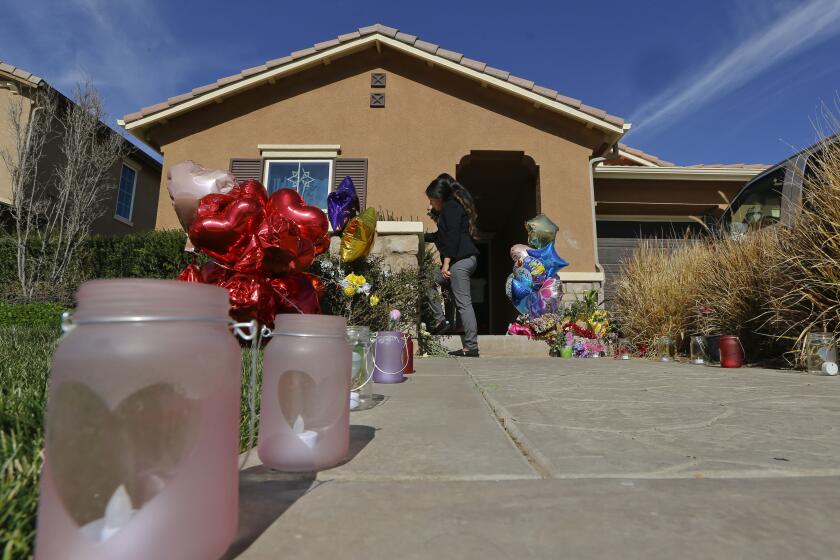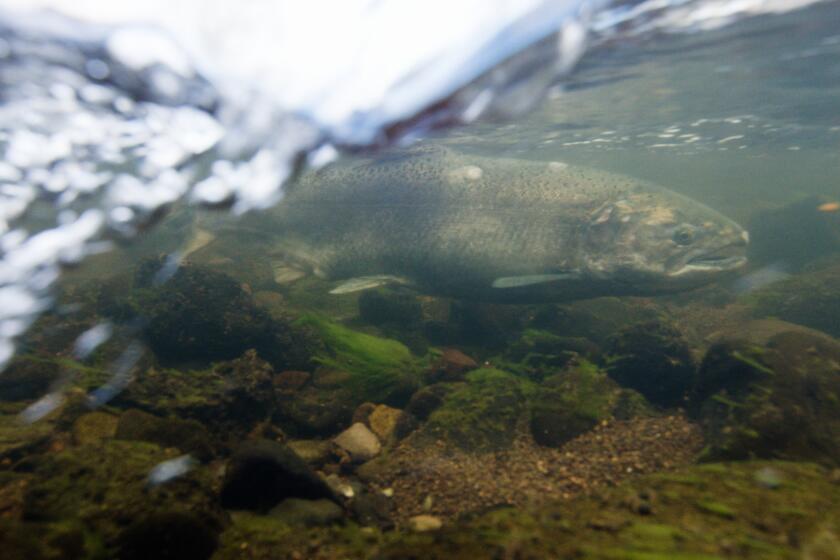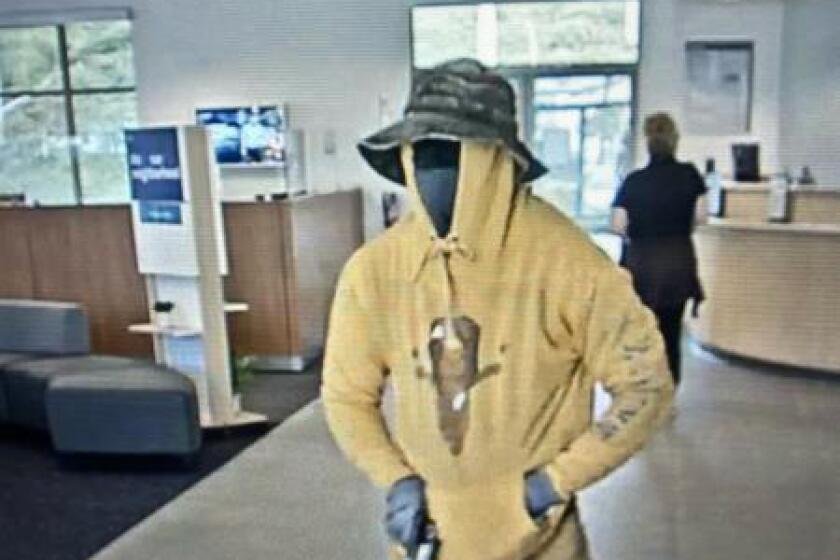Recycler Sting Finds Payouts Too Low
Customers who deposit bottles and cans at recycling centers across Los Angeles County are shortchanged 20% of the time, according to an undercover sting by county officials that put the loss to consumers at as much as $15 million a year.
The Weights and Measures bureau sent inspectors to the county’s 562 registered recycling centers over the last year. They found consumers were often shortchanged by miscalibrated scales and improper surcharges.
“It’s a significant issue. We’re getting too high of a rate in error,” said Cato Fiksdal, county sealer of weights and measures. “Zero percent is what the target should be; 20% is just intolerable. I would say it’s a big deal.”
For each transaction, county officials sold about 3 pounds of aluminum cans or plastic and glass bottles. On average, offending recyclers paid 50 cents to 60 cents less per transaction than they should have, according to the study.
Though the loss may seem small, officials said they were alarmed at how widespread the problem was and vowed to crack down.
“For that one person over the course of the year, it may only mean $10 or $20,” said Jeff Humphreys, deputy director of the Agricultural Commissioner/Weights and Measures bureau. “But you look at the entire population and all the people who go to recycling centers -- it’s certainly a lot of money.”
Officials said consumers are more likely to be shortchanged by recycling center scales than by other machines regulated by the Weights and Measures bureau, such as gas station pumps. Consumers receive less gasoline than they pay for 5% to 10% of the time, according to county studies.
In response to the finding, the county has fined scores of recycling centers. In four cases, the county filed misdemeanor charges against recyclers considered egregious violators.
Two weeks ago, Melvin Jaffee of PCH Cash 4 Cans pleaded no contest in Long Beach Superior Court to a charge of “purchasing of less than true quantity,” a misdemeanor. The company was fined $3,100 and ordered to pay the Weights and Measures bureau $1,700 in investigative costs.
Jaffee also owns Bellflower Recycling Center, which in January was ordered to pay $2,700 in total fines.
Jaffee maintains his innocence, saying human error contributed to two isolated incidents and that most of his customers are not shortchanged.
“We run a legitimate business, and for us to take 20 or 30 cents when we’re doing millions of dollars in business is ridiculous,” Jaffee said. “Our computers are operated by human beings, and occasionally there can be an error. We try to avoid that.”
In February 2003, a Lynwood recycler pleaded no contest to charges and was ordered to pay more than $3,302, according to the county. In August, a North Hollywood recycler faced similar charges. He also pleaded no contest and was fined $2,600.
In addition, the county found that some recycling companies add hidden charges and fees above their advertised rate.
Recycling centers are licensed by the state Department of Conservation, where officials said they were surprised by the amount of shortchanging found by local inspectors. Jim Ferguson, assistant director for recycling, said the state’s estimates for consumer losses in Los Angeles County had been much lower -- $1 million to $1.5 million. He said his office had not reviewed the Los Angeles County report but hoped to meet with inspectors soon.
Ferguson acknowledged that recycling centers are far from trouble free. “We have significant fraud problems in the program,” he said. “We keep developing new ways of going after those people. But it’s certainly never going to go away.”
Los Angeles officials made their $15-million estimate by multiplying the 50 to 60 cents worth of undercharging they found during most inspections by the total number of recycling transactions for cans and bottles in the county.
The county regularly inspects recycling centers by sending undercover agents in with cans and bottles. They pre-weigh the recyclables to determine whether the scales are accurate. Fiksdal said he and Humphreys had compared notes last summer and concluded that a large number of recycling centers underpay, so they decided to launch a full-scale sting.
The county does not determine, as part of its probes, whether inaccurate scales represent a deliberate attempt to scam customers.
“If they screw up, we don’t think they necessarily do it intentionally,” Fiksdal said. “However, they have a responsibility to do it right.”
Recycling is big business in California. State residents purchased 18.2 billion beverage containers in 2003. About 10.6 billion were recycled.
In recent years, recycling rates have declined steadily, partly because of an explosion in products sold in plastic bottles -- notably water. In 1999, 10% of beverage containers in California were plastic bottles. By 2001, that number had more than doubled to 24%. But only 36% of plastic bottles were being recycled. By 2003, that figure had dropped to 16%, according to a state report.
But officials expect an increase in bottle and can recycling with the enactment of Senate Bill 23, which increased the California redemption value. The increase -- to 4 cents from 2.5 for smaller bottles and to 8 cents from 5 for containers of 24 ounces or more -- took effect Jan. 1.
The county isn’t the only jurisdiction trying to crack down on recycling problems. Three years ago, in a highly publicized fraud case, the state Department of Conservation accused Los Angeles-based Active Recycling of falsifying receipts to collect redemption money. The company in turn filed multiple lawsuits against the Department of Conservation, claiming false accusations had tarnished its reputation and driven away customers. A Los Angeles Superior Court judge later dismissed the suits.
The Department of Conservation is still investigating the case and is seeking $2.1 million in restitution from the company.
*
(BEGIN TEXT OF INFOBOX)
L.A. recycling
Last year 14% of the beverage containers recycled in the state were recycled by Los Angeles residents, who collected 1.5 billion cans, bottles and jugs.
Aluminum cans: 671,117,206
Plastic bottles: 413,678,294
Glass bottles: 316,932,321
Plastic milk jugs: 57,255,459
Bi-metal cans*: 289,622
*Used in imported beverages
Source: California Department of Conservation
More to Read
Sign up for Essential California
The most important California stories and recommendations in your inbox every morning.
You may occasionally receive promotional content from the Los Angeles Times.










